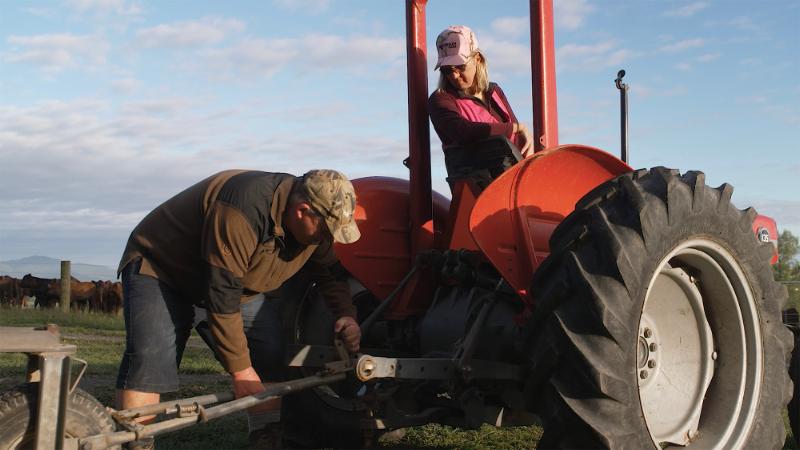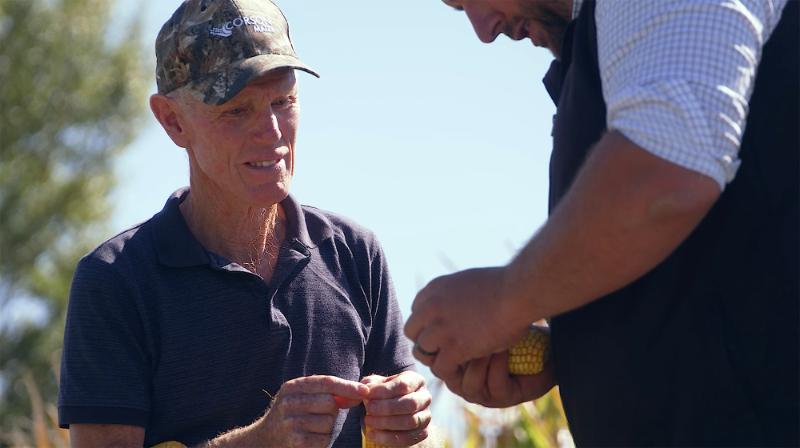Come on over & grow with us.
Every year more farmers are choosing to grow Corson Maize.
As you travel around New Zealand during the maize growing season you may be thinking “am I seeing more Corson Maize signs or is it just my imagination?”
It’s not your imagination; this year we have seen another impressive increase in the number of Corson Maize crops grown around the country. Over the last three years in New Zealand the number of farmers growing Corson Maize hybrids has continued to increase due to a number of reasons. The most obvious being that growers are experiencing the solid performance of Corson Maize hybrids that produce dependable yields through varied weather conditions and provide excellent quality feed for silage and grain. At Corson Maize we value trust, integrity and honesty. Our partnerships with our growers are built on a mutual understanding of what is best for their farming operation. Below are some of their stories.
GRAY AND MARILYN BALDWIN'S STORY

Gray and Marilyn have 185 hectares of maize, with just about every flat paddock they can grow maize on planted with Corson Maize hybrids. They've been working with Corson Maize for years now, and have found confidence that the hybrids can handle the varying weather conditions throughout the season. In a working relationship, Gray and Marilyn find it important that the people they are dealing with are trustworthy.
Read on to hear more about the benefits they experienced as a result of working with Corson Maize.
JOHN ERSKINE'S STORY

John has been farming for over 50 years; his total property is 47 hectares, with about 41 in maize. John started working with Corson Maize through a connection to another grain company and he quickly found that Corson Maize hybrids were working well for his farming operation. John's relationship with Corson Maize is based on a mutual understanding of what his aims are, and what hybrid characteristics work best with the soil and climate conditions on his property.
Use the link below to hear John's full story.
TAWERA NIKAU'S STORY

After playing rugby league for many years, Tawera returned home to his whanau's farm at Matahuru. The role that he and fellow trustee's have been entrusted with is kaitiakitanga, which is about guardianship and leaving the land in a better place. Maize plays an important role in this vision, and together with experienced Corson Maize team members, a partnership has formed and continues to grow. Between different parts of the farm, including low-lying and hillier crops, and also looking ahead to the future through regenerative agriculture, Tawera appreciates the honest and trustworthy advice that Corson Maize provides.
His full story can be found below.
Bill Reymer's Story

Reymer Ag Contracting owned by Bill and Lyn and sons Mike and Chris, grow their own 700 ha of maize for trade and contract harvest for other farmers around the Waipa district. You could say maize is in their blood - they really know maize and understand specifically what farmers are looking for in terms of hybrid performance. The balancing act between harvesting their own maize and prioritising the needs of their farmer customers is key to their business. That’s where Corson Maize comes in. As well as high yields, Corson hybrids’ drought tolerance and the ability to stay green for longer means their own crops ‘have the ability to hold on’ while they meet the demands of peak harvest with their customers.
